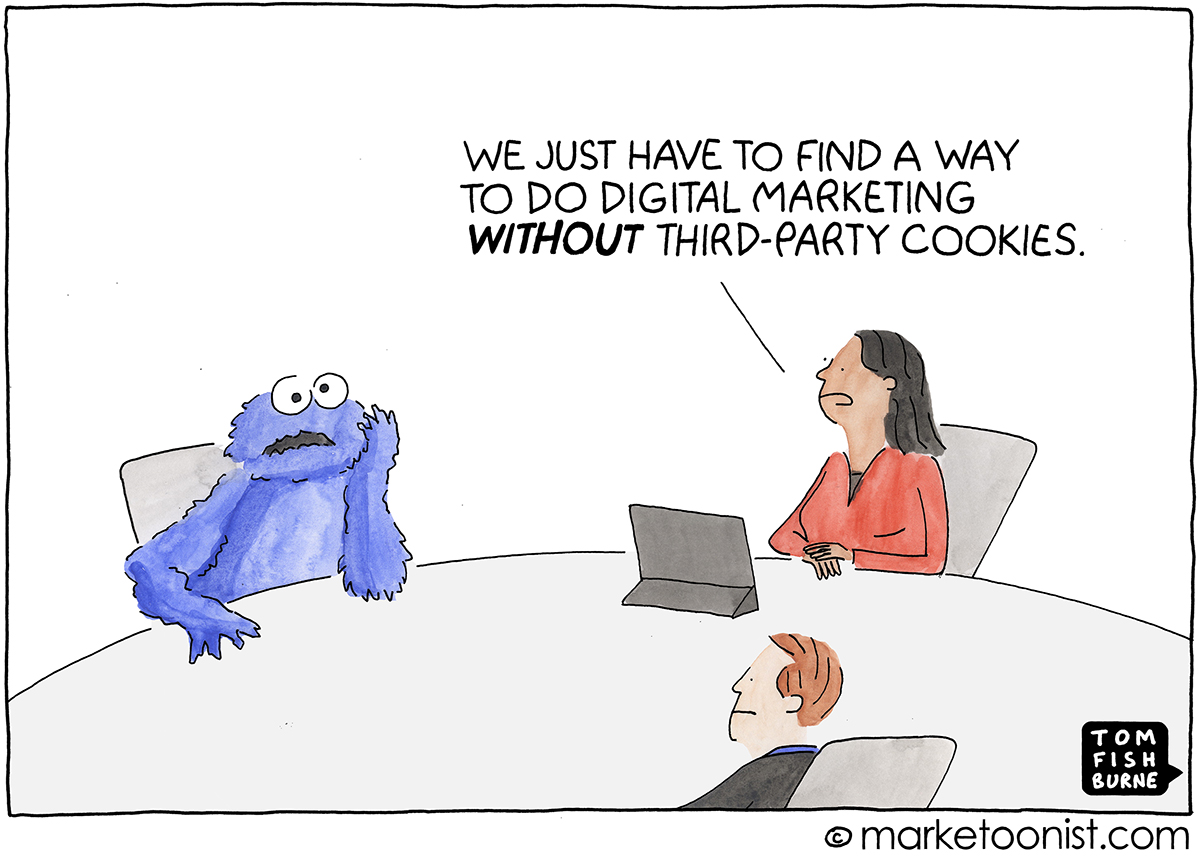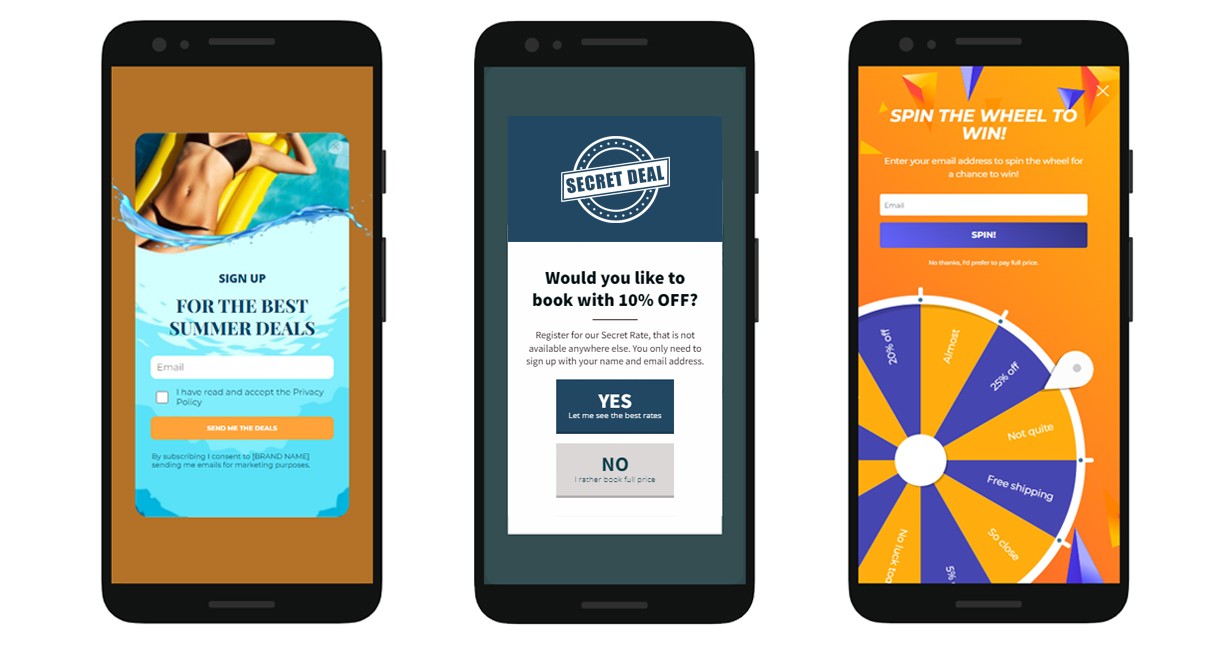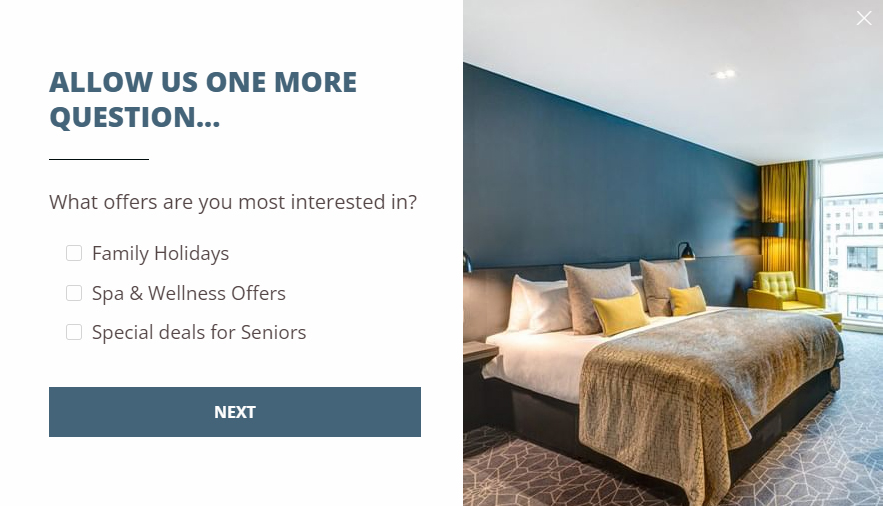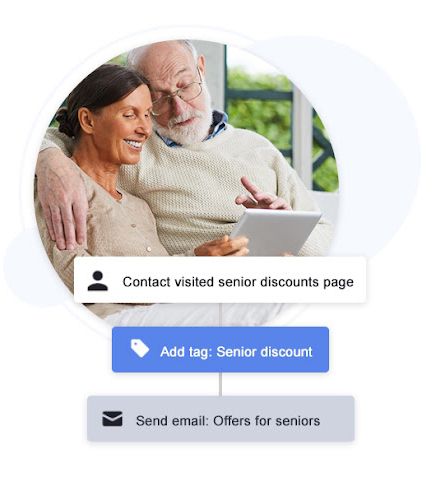Cookies have always been the online advertising industry’s main method to retarget customers. But soon we’ll have to say goodbye to 3rd party cookies, as by 2023, marketers will be living in a cookie-less world.
Joining its competitors, Firefox and Safari, Google Chrome – the world’s number one browser giant – announced that it will completely block third-party cookies by 2023.
It’s going to fundamentally change our digital marketing practices and every hotel needs to be prepared for that.
Hotels that are not taking action now should prepare for increased advertising budgets or drastic deterioration of results with an unchanged budget.
The good news is that there is a solution. But before we get there, let’s start with the basics.
(If you’re already familiar with the basics, jump right to the solution)
What are cookies, and what do they do?
What exactly are those cookies that you have to accept every time you visit a website?
When visiting a page a file gets downloaded to your browser. This little file makes it possible to track your activity, to save your settings and your password on the site so you don’t have to reset them the next time you visit.
So to the visitor these are mainly practical features. However, they also provide useful analytics and marketing data for the website hosting the cookie. Cookies are a necessary tool for retargeting, reporting, personalization, and A / B testing.
However, we need to distinguish between first-party cookies and third-party cookies.
You see, if someone visits your hotel website, in that case your own website cookie will be placed on the visitor’s browser. This is the so-called first-party cookie, which is always sent from the site visited by a user.
But most of the time there are also third-party providers present on our hotel website that also use cookies to help recognise users across different websites. Such are typically Google, Facebook and other advertising partners. These are the ones falling under the third-party cookie category.
What will happen when third-party cookies go away?
To illustrate it with an example, if you browse for an offer on hilton.com, then you will immediately get a first-party cookie from Hilton (if you give your consent, that is).
The next time you visit their page Hilton will remember your last visit and may personalize the website content based on your last interactions. Maybe they will even call you by your name in case you’ve registered before.
Hilton will still be able to do that in the future as Google’s announcement only affects third-party cookies, so first-party cookies will be alive and well.
However, until now, a 3rd party cookie was needed for Hilton to show relevant ads to you the next time you open up Facebook or visit any other website on Google’s ad network.
We’ll have to say goodbye to these traditional, cookie based remarketing solutions and customer interest based retargeting.
Sure, advertisers will still be able to use first-party cookies to continue retargeting their own website visitors. However, Google, Facebook and other advertising providers will lose one of their best tools when it comes to collecting customer data.
And with less customer data ads will become less relevant resulting in advertisers facing higher advertising costs.
So every hotel that runs online ads needs to get ready for that and prepare for alternative digital marketing solutions.


2. Segmentation
Sending the right message to the right person will result in a smooth, personalized experience for guests, and better results for your hotel.
We provide multiple segmentation solutions:
-
- during the sign-up process by inquiring about the guest’s interests
- using a profile or preference form sent after the registration
- based on content visited on the website or clicked in a newsletter

3. Email automation
The advantage of email automation is that it does need to be set up once and from there it works on its own. It gets triggered automatically based on the behavior or the interest of the guest.
However, automation not only saves time, but can boost the effectiveness of your email marketing by as much as 40-50%.
We can use automation to send:
-
- Welcome emails, or entire welcome sequences to new subscribers
- Interest based emails triggered by content they visit on the website
- Coupon code reminder
- Birthday greetings
- Re-engagement emails for subscribers becoming less active
Automation also allows us to filter visitors who are currently the most active on your site and target them specifically.
Or to keep your email list updated, we can also automatically unsubscribe those who have become inactive.

Remarketing with extra boost
We should not forget about the fact that the email addresses collected on your website can also be uploaded as a custom audience to Facebook. And immediately you are able to show them relevant offers or contents on Facebook too.
And there’s one more benefit to adding your audience to Facebook. You can create a so-called Lookalike Audience based on your own list. The lookalike audience will consist of people that show high similarity with your contacts in terms of interest, demographics and main characteristics.
That way, you can easily target an audience of 10,000 from a few thousand emails.
No time to waste! Start building your database now!
If you haven’t started building a database yet, it’s about time to do so. Otherwise, by 2023, you could easily find yourself at an insurmountable disadvantage.
Book an appointment for a free consultation now and let us discuss the details.
Not only will we provide you with excellent advice, but we will also implement it for you 🙂
You may also be interested in:
How to select the online travel agency to contract with?
Almost every online travel agency or coupon company claims to be a market leader in their own segment with hundreds of thousands of visitors monthly. They try to convince you that you are missing out on the biggest opportunity of your life if you do not enter into a...
We have a secret for you: there is a way to undercut OTA prices without affecting your rate parity
The majority of online travel agents include some form of a rate parity clause in their general terms and conditions, forcing hotels not to undercut the public room prices that the OTA charges for their hotel. This restriction generally applies to all distribution...
8 conversion goals exit popups are most suited for
“When one door closes another door opens“, a phrase often used by optimists. Being an optimist myself, I absolutely agree, as a marketing and sales person however I like to use a minor modification: “When a door closes make another door open” This is exactly what an...
By hotel type

City hotels

Resort hotels

Hotel chains
By method

Facebook and Google Ads managemenet
Hotel website personalization

Email marketing & automation





Recent Comments